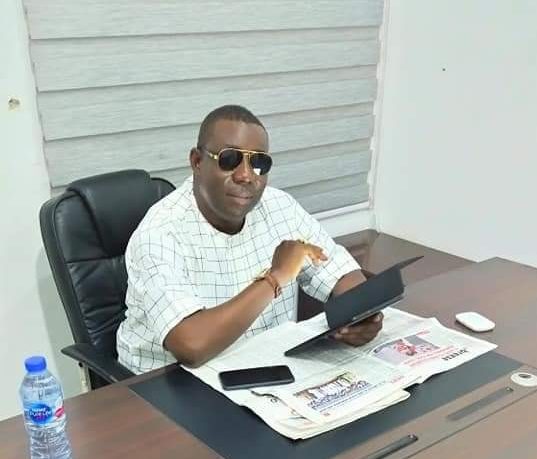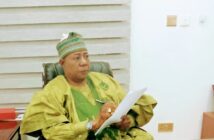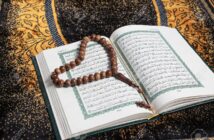As a frontliner and big player on the African continent, Nigeria ought to serve as a springboard for ethnic harmony, from which sister African countries can borrow a leaf. But in recent times, the quality of our national discourse has continued to deteriorate, polarised along ethnic fault lines. Too many groups have emerged to champion primordial, narrow and pedestal sentiments and ethnocentric rhetorics, which are further doing damages to the unity and peaceful coexistence of Nigeria.
No nation can prosper above the degree of the ethnic harmony it enjoys. That is why bridge and consensus building are considered vital tools, without which no country can sustainably develop. The current ethnic disquiet is not only hurting how Nigeria is perceived internationally, but frustrating President Muhammadu Buhari’s noble efforts at uniting the ethnic components that make up Nigeria.
Just this week, a sociocultural group in the South West of Nigeria came out to spew their usual divisive rhetorics. The organization said it was not going to support any presidential candidate in the build-up to the 2023 presidential election, except Nigeria is restructured through constitutional review. Calls for Restructuring of Nigeria has become a tool each time election season is around the corner.
Is it not advisable for any individual or group whose ideas are at variance with the Buhari administration should simply join a political party, contest for a legislative position, either for the state House of Assembly or the National Assembly, where he can canvass his governance ideas and convince the majority during plenary deliberations adopt them as constitutional provisions? by so doing majority will carry the votes, the minority would also be put in to consideration, and the executive will abide by the provisions of the law That is the ideal way democracy is practiced all over the world instead of arm-chair criticisms that overheat the polity.
The standard practice glovally is that when the need for a constitutional amendment arises, the processes of consensus building through consultations is kick started throughout the country and not a group holding everyone to ransom for political advantage. The way and manner groups fly the kits of constitutional change whenever the interests of their paymasters are at stake, as if it is a tea party, is sickening.
Agreed that it is politics, but this is not how it is played. Playing politics with the peace and harmony of one’s country is politics carried too far. An old saying has it that if you see a Toad dancing on top of water, check very well; its drummer may be under the water. Besides, the tunes of these group is similar to the biblical voice of Jacob and the hand of Esau. The summary is that deep pocket politicians may be bankrolling their activities to distract the efforts of the Buhari-led government to build a truly peaceful and united Nigeria.
Sadly, even business groups are joining in trivialising and mortgaging the destiny of our country by making proclamation about disrupting food supply chain across the country. The Pan-Yoruba socio-political organisation, Afenifere, its South East counterpart, Ohanaeze Ndigbo, the Pan-Niger Delta Forum (PANDEF), among others, condemned the threat to stop supply of foodstuffs and cattle to the South from the North by the Amalgamated Union of Foodstuffs and cattle Dealers of Nigeria.
Issuing of ultimatum for people of certain ethnic groups to leave other parts of Nigeria have become a recurrent decimal. This is despite the giant efforts President Buhari has made in the last six years to heal the carryovers of the past. For instance, in 2017, President Buhari approved the payment of pension for police officers who were granted presidential pardon in 2000 after serving in the defunct Biafran Army during the 30 months Nigeria Civil war. The personnel who were granted presidential pardon by the then President Olusegun Obasanjo did not receive their pension until Buhari acted. A total of 162 officers were payrolled while Next of Kin who have also not been paid their death benefits benefited.
The N206 billion contract for the Second Niger Bridge awarded in 2018 to a greater extent is part of efforts by President Buhari to promote inclusiveness and enhance ethnic harmony. The least stakeholders can do is to give peace a chance by supporting the current administration in its drive to unify and move Nigeria forward.
Nevertheless, question must be asked, what went wrong? Because, this is not how the country started. Founded on the tripod of three major ethnic groups, regions and political leadership, the historical antecedents of Nigeria present us with rich archives of socio-political and economic charismatism to learn from. Though the political leaders of Nigeria’s foundation in 1960 differ in their political leanings, they are unanimous in their resolve not toy or exploit Nigeria’s diversities for political advantage. At moment of challenges, leaders bury their differences in order to preserve the sanctity of the nation. The trio of Chief Obafemi Awolowo, Sir Ahmadu Bello and Dr Nnamdi Azikiwe laid enduring foundation for Nigeria despite their political differences.
In modern era, politicians and opinion leaders in most advanced societies have differences in terms of political ideologies and interests. However, the interest of their country is esteemed above any narrow, pedestal, parochial and mundane considerations.
Unfortunately, the sterling virtues of political patriotism and flagship of unity by our founding fathers have been subsumed by political opportunism. As against the prevailing practice of politicians putting their nation first and serving as springboard for ethnic unity, an average politician in Nigeria today, leverages on every slightest opportunity to sing or cast ethnic cards. These unbridled disposition of Nigerians has continued to re-enforce the country’s ethnic fault lines, which has become the albatross hunting the peace and social order of Nigeria.
– Ibrahim is director, Communications and Strategic Planning, of the Presidential Support Committee (PSC)



